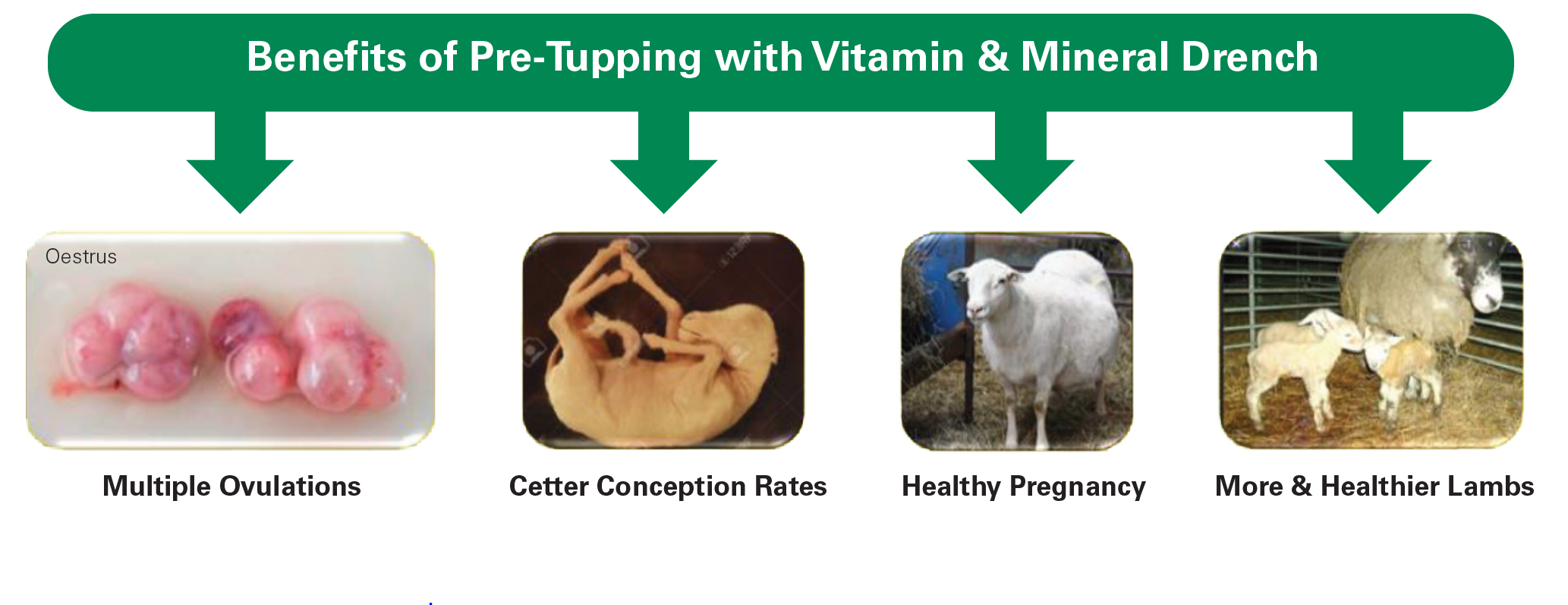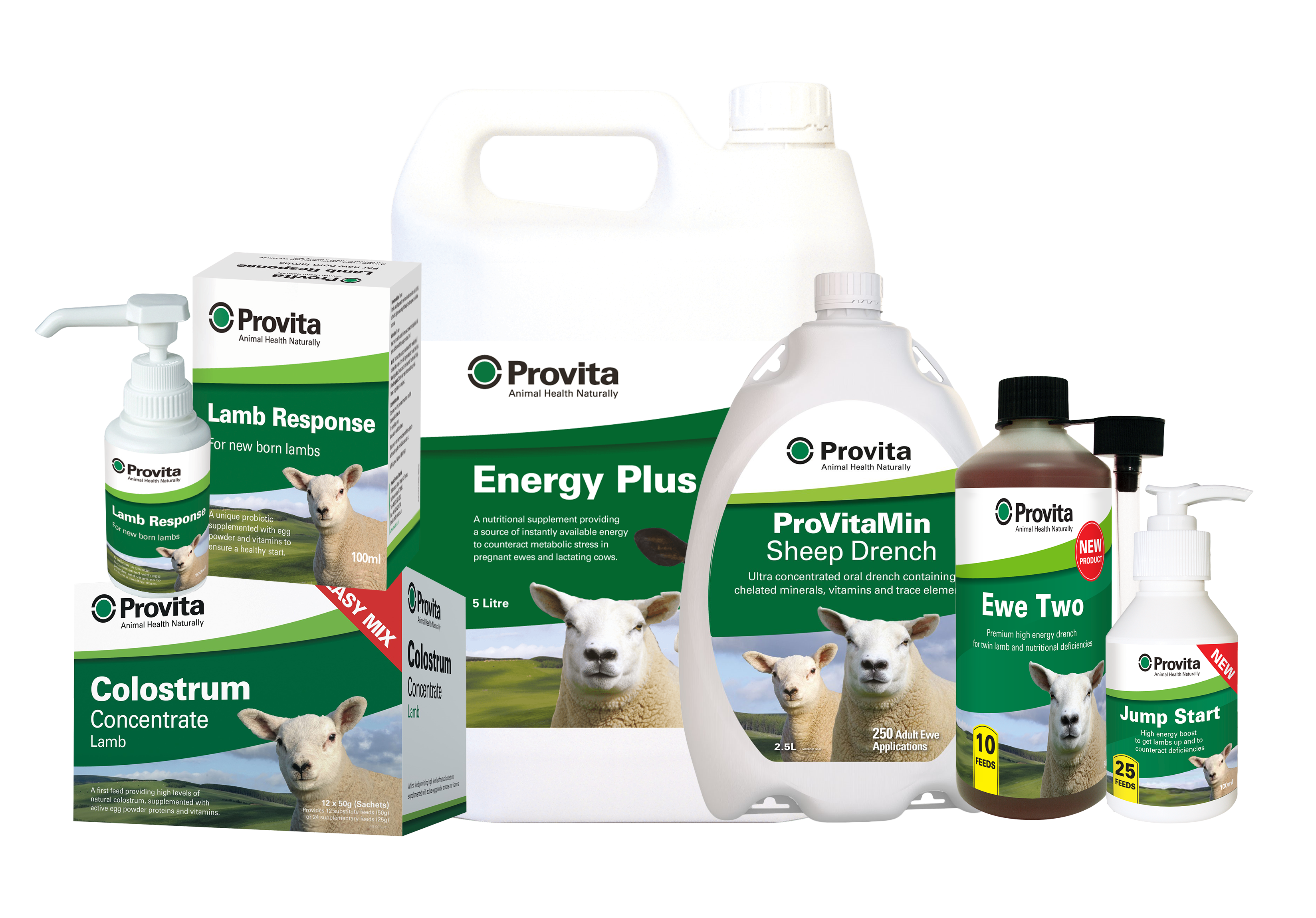Written by Dr T.B. Barragry PhD MSc, MVB, MRCVS, Vet Pharmacologist
Maintenance of a stable trace element status can be a challenge in many sheep flocks. Late in the season, many sheep are exposed to poor quality grazing and forage which has quite low trace element and nutritional values. Sheep are also subjected to the stresses of harsh outdoor conditions and exposed on hillsides to extreme weather variations. Foot problems are also very common occurrences in flocks and this painful lameness can significantly impede mobility and grazing and lead to inadequate nutritional intake. Soil and herbage composition can vary in different geographical areas and can determine the various specific trace element deficiencies that are found in local regions.
All these factors acting together can contribute to deficiencies of selenium, vitamin E, vitamin B12, copper, cobalt, selenium, zinc, and iodine in sheep. This deficiency is made worse during pregnancy when higher than normal nutritional and metabolic drains are being made on the ewe, because of the extra demands from the developing foetus.

The tupping season brings many extra demands on the requirements for adequate trace elements and vitamin intake for the ewe. Ovulation and multiple ovulations in the ewe are dependent on high-quality nutrition and supply of key trace elements and certain vitamins such as, folic acid and beta carotene. Vitamin B12, selenium and vitamin E are required for ovulation and good fertility status. To facilitate the possibility of multiple ovulations of healthy ova in the cycling ewe, these trace elements must be supplied pre-tupping in quantities to compensate for their likely shortfall on herbage in late summer/autumn. Selenium governs foetal growth and immunity, but in deficiency states it may give rise to muscle stiffness and white muscle disease in young lambs. Selenium and vitamin E serve as potent antioxidants, lowered incidences of retained placentas, mastitis, metritis, and cystic ovarian disease and improve immunity, conception rate, fertility, and production.
A deficiency of zinc compromises sperm production and quality; and is also necessary for antibody production. Cobalt promotes foetal production and lamb vigour after birth. Manganese and zinc are involved in the synthesis of bone, teeth, and hormones. Even if the animal is only deficient in one of these minerals, the overall production and reproduction can be negatively affected. Supplementation given before lambing season will have a definite positive impact on the number of lambs born, number of weaned lambs (survival) and their weaning weight. Copper plays a key role in development of the foetal lamb and copper deficiency in pregnancy can result in swayback in the newborn lamb. Like cobalt, iodine is a trace element that ruminants have no capacity to store, and a continuous supply must therefore be available. Iodine is essential for normal foetal growth and development. Abortions in sheep are often associated with iodine deficiency.
Colostrum: Trace minerals are transferred from the ewe to the foetus and ensure that lambs are born with optimal levels of trace minerals. Milk does not contain significant quantities of trace minerals; therefore, it is important that lambs are born with an optimal level. The quality of the colostrum is also affected by the ewe’s trace mineral status during late pregnancy through the effect it has on the number of antibodies in the colostrum. Adequate trace element nutrition also ensures good quality colostrum, rich in gamma globulin antibodies for the immunodeficient newborn lamb. This is important since it kick starts the lamb’s immune system and optimises the early (maternal) immunity of the lambs.
Vitamins: B vitamins are important for making sure that all the body’s cells are functioning properly, and they also act as co-factors for trace element enzymes. Many of these B vitamins act as triggers to ensure optimum fat, carbohydrate, and protein metabolism, thereby indirectly and positively affecting ovulation, foetal development, foetal size, and ewe health.
Vitamin A (and beta carotene) are required by sheep for a variety of functions throughout multiple body systems. Plants produce carotene, which the ruminant then converts in the intestine into vitamin A. The greenness of the plant is a relatively good indicator of the carotene content. Fresh forages and early cut, leafy, green hays have high carotene content. Vitamin A together with zinc directly affects immunity through both production of antibodies and through maintaining an adequate barrier to infection with healthy skin cells.
In summary, the essential trace elements for supplementation before tupping include cobalt, (Co), manganese (Mn), zinc (Zn), copper (Cu), iodine and selenium (Se). These six trace minerals play an important role in the ewe’s fertility status at tupping and later during pregnancy. A deficiency in any of these during late pregnancy can have a negative effect on the development and survival of the lamb(s).
Lamb growth, survival, viability and especially immunity will be optimised by vitamin E, selenium, vitamin A and zinc. Pre-tupping dosing is thus a sound financial investment. The pregnant ewe may also need trace element supplementation during pregnancy, as the foetal lambs increase in size in the uterus, thus making greater nutritional demands upon the dam. Hoofcare must not be overlooked in all this reproductive sector, as it is a major determinant of sheep mobility, grazing ability, and ultimately, it’s nutritional intake.
- Dr Barragry acts as Veterinary Advisor to Provita Eurotech Ltd.
The Provita range includes probiotics, feed and vitamin, mineral supplements, colostrums, electrolytes, hoof care, and feed additives for ewes, sheep, lambs, calves, beef and adult cattle. Like Anpario, Provita is helping to make the achievement of consumer demands possible by developing products that enable a more natural approach to animal production.


